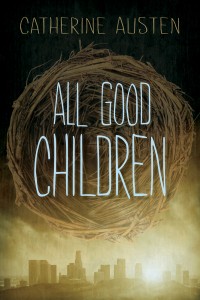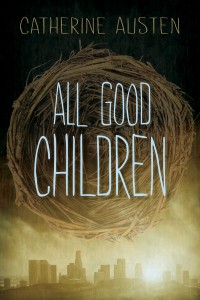This week, we are celebrating another great list of Notables from the Children's Literature Assembly of NCTE. Great work, Committee! Great books, Authors!
2014 Notable Children’s Books in the Language Arts
Ah Ha!, by Jeff Mack, published by Chronicle Books.
Counting by 7s, by Holly Goldberg Sloan, published by Dial.
Escape from Mr. Lemoncello’s Library, by Chris Grabenstein, published by Random House.
Etched in Clay: The Life of Dave, Enslaved Potter and Poet, by Andrea Cheng, published by Lee & Low Books.
Exclamation Mark, by Amy Krouse Rosenthal, illustrated by Tom Lichtenheld, published by Scholastic Press.
Forest Has a Song, by Amy Ludwig Vanderwater, illustrated by Robbin Gourley, published by Clarion Books.
Gaby, Lost and Found, by Angela Cervantes, published by Scholastic Press.
Hold Fast, by Blue Balliett, published by Scholastic Press.
Journey, by Aaron Becker, published by Candlewick Press.
Knock Knock: My Dad’s Dream for Me, by Daniel Beaty, illustrated by Bryan Collier, published by Little, Brown and Company.
Light in the Darkness: A Story About How Slaves Learned in Secret, by Lesa Cline-Ransom, illustrated by James E. Ransome, published by Disney/Jump at the Sun Books.
Little Red Writing, by Joan Holub, illustrated by Melissa Sweet, published by Chronicle Books.
Look Up! Bird Watching in Your Own Backyard, by Annette LeBlanc Cate, published by Candlewick Press.
Martin and Mahalia: His Words Her Song, by Andrea Davis Pinkney, illustrated by Brian Pinkney, published by Little, Brown and Company.
Navigating Early, by Clare Vanderpool, published by Delacorte Press.
Nelly May has Her Say, by Cynthia DeFelice, illustrated by Henry Cole, published by Margaret Ferguson Books/Farrar Straus Giroux.
Prisoner 88, by Leah Pileggi, published by Charlesbridge.
Sure Signs of Crazy, by Karen Harrington, published by Little, Brown and Company.
The Beatles Were Fab (and They Were Funny), by Kathleen Krull and Paul Brewer, illustrated by Stacy Innerst, published by Harcourt Children’s Books.
The Candy Smash, by Jacqueline Davies, published by Houghton Mifflin Books for Children.
The Day the Crayons Quit, by Drew Daywalt, illustrated by Oliver Jeffers, published by Philomel Books.
The Language Inside, by Holly Thompson, published by Delacorte.
The Lightning Dreamer: Cuba’s Greatest Abolitionist, by Margarita Engle, published by Harcourt.
The Long, Long Journey: The Godwit’s Amazing Migration, by Sandra Markle, illustrated by Mia Posada, published by Millbrook Press.
The Matchbox Diary, by Paul Fleischman, Illustrated by Bagram Ibatoulline, published by Candlewick Press.
The True Blue Scouts of Sugar Man Swamp, by Kathi Appelt, published by Atheneum Books for Young Readers.
This Journal Belongs to Ratchet, by Nancy J. Cavanaugh, published by Sourcebooks Jabberwocky.
When Thunder Comes: Poems for Civil Rights Leaders, by J. Patrick Lewis, illustrated by Jim Burke, R. Gregory Christie, Tonya Engel, John Parra, and Meilo So, published by Chronicle Books.
Words with Wings, by Nikki Grimes, published by WordSong.
Zebra Forest, by Adina Rishe Gewirtz, published by Candlewick Press.
2014 Notable Childrens’ Books in the Language Arts Selection Committee Members: Patricia Bandré, chair; Shanetia Clark, Christine Draper, Evie Freeman, Dick Koblitz, Jean Schroeder, and Barbara Ward
 Catherine Austen’s All Good Children is on a roll. Since its release in the fall of 2011, the dystopian teen fiction title has won or been nominated for a growing list of awards, including Resource Links‘ “The Year’s Best,” the CLA Young Adult Book Award (winner), the CCBC Best Books list, YALSA’s Teen’s Top Ten (nominee) and most recently, the YALSA Best Fiction for YA (nominee—winner to be announced later this year).
Catherine Austen’s All Good Children is on a roll. Since its release in the fall of 2011, the dystopian teen fiction title has won or been nominated for a growing list of awards, including Resource Links‘ “The Year’s Best,” the CLA Young Adult Book Award (winner), the CCBC Best Books list, YALSA’s Teen’s Top Ten (nominee) and most recently, the YALSA Best Fiction for YA (nominee—winner to be announced later this year).
About All Good Children
It’s the middle of the twenty-first cent ury and the elite children of New Middletown are lined up to receive a treatment that turns them into obedient, well-mannered citizens. Maxwell Connors, a fifteen-year-old prankster, misfit and graffiti artist, observes the changes with growing concern, especially when his younger sister, Ally, is targeted. Max and his best friend, Dallas, escape the treatment, but must pretend to be “zombies” while they watch their pad and hopes decay. When Max’s family decides to take Dallas with them into the unknown world beyond New Middletown’s borders, Max’s creativity becomes an unexpected bonus rather than a liability.
ury and the elite children of New Middletown are lined up to receive a treatment that turns them into obedient, well-mannered citizens. Maxwell Connors, a fifteen-year-old prankster, misfit and graffiti artist, observes the changes with growing concern, especially when his younger sister, Ally, is targeted. Max and his best friend, Dallas, escape the treatment, but must pretend to be “zombies” while they watch their pad and hopes decay. When Max’s family decides to take Dallas with them into the unknown world beyond New Middletown’s borders, Max’s creativity becomes an unexpected bonus rather than a liability.
Get your copy of All Good Children.
Visit Catherine Austen’s website to check out all her books for children, middle-school readers and teens.

 We’re thrilled to announce that Catherine Austen has won the Canadian Library Association(CLA) Young Adult Book Award for 2012 for All Good Children.
We’re thrilled to announce that Catherine Austen has won the Canadian Library Association(CLA) Young Adult Book Award for 2012 for All Good Children.
The Young Adult Book Award recognizes an author of an “outstanding Canadian English-language work of fiction (novel or collection of short stories) that appeals to young adults between the ages of 13 and 18.” Previous winners include Kenneth Oppel, Lesley Livingston, Allan Stratton, Martha Brooks, William Bell, Shyam Selvadurai, Miriam Toews, and Polly Horvath.
Here’s what the CLA had to say:
“In the near future of All Good Children, corporate towns proliferate and try to control the lives of everyone who lives in them. In Middleville, a school vaccination program has been instituted that turns girls and boys into compliant and obedient good children. Catherine Austen takes us on a roller-coaster ride of humour and suspense as, through the eyes of teen artist and prankster Maxwell Conner, we experience the resistance of his family and a close friend to the “zombification” program. Austen’s novel explores the nature and value of creativity, individuality, and non-conformity with memorable characters and a gripping plot.” Read the full press release.
Congratulations also go out to this year’s honour books and authors: Karma, by Cathy Ostlere (Penguin Canada) and This Dark Endeavour, by Kenneth Oppel (HarperCollins). A complete list of the 2011 finalists, as well as information on past winners, is available on the CLA web site.
Learn more about All Good Children (and order your print or ebook copy!) on the Orca Book Publishers website.


Talking about the digital divide in Connecticut is a lot different from talking about it in Texas, or even Vermont. Unlike most states I’ve looked at, Connecticut really doesn’t have a large population of people who live in an area where they can’t get broadband. I’m sure it has the same numbers of offline people, generally speaking, but whatever their reasons for being offline are, they’re not for lack of access. I admit, I played this for laughs a bit at my CLA since I know that people aren’t going to confuse broadband access with technological know-how and will still see that there is work to be done.
All my talks went well. Here’s what I’ve been up to recently
- Last Thursday I was on a panel with some interesting people including the soon-to-be-president of ALA Molly Raphael. We answered some provocative questions about the future of libraries and mostly had a great time.
- Friday I gave my talk about developing a technology curriculum for libraries. For those of you used to my usual stuff, this was a departure. Not heavily attended–it was in one of the last timeslots of the conference–but I was pleased with it. If you’re considering a technology curriculum, you might be interested in my short set of notes/slides. I got to present with Anna Fahey-Flynn who is Curriculum Development Librarian at Boston Public and it was really interesting to see how their tech instruction program is coming together.
- Over the weekend I walked around in the sun in Massachusetts and then headed to CT for the CT Library Association conference. Before attending the conference I was interviewed for public acess TV in Manhattan about the Google Books project and copyright and a few other things. No idea when this will go live, but if you think you’ve seen me on tv talking about Google Books, you may have.
- Tuesday I gave a talk about myths about the digital divide, similar to my Texas talk but with some local examples.
As usual, I also got to attend some great presentations including a talk by BPL and the Internet Archive [at MLA] about how they’re working together to provide digital access to library content via Open Library. This may be a personal thing, but I’m always excited when libraries test boundaries and tell us “We checked with our lawyers and they think this is an acceptable level of risk.” I also saw a CMS smackdown/comparison [Drupal vs. WordPress] by Polly-Alida Farrington and Shanon Clapp which was full of good information and delivered with a friendly “you can do it!” approach. I also saw John Palfrey’s closing keynote talking about the digital divide and some of what Harvard’s Library Lab has been up to, and the DPLA and other things. I’ve mostly seen him in contexts where he was talking to non-librarians so it was fun to see him explaining a lot of these big idea projects on my home turf.
I’m home for a bit, back to teaching my Know Your Mac classes, staffing drop-in time, filling in at the public library and waiting for my book to be in print [this week, here's hoping] and then travelling to Portland at the end of the month for the Oregon Virtual Reference Summit.










Hi Jessamyn,
Do you know if your MLA sessions will be videotaped and posted? Maybe just for members’ use? Thank you. Shannon
i believe about the digital divide and offer some researched based statistics